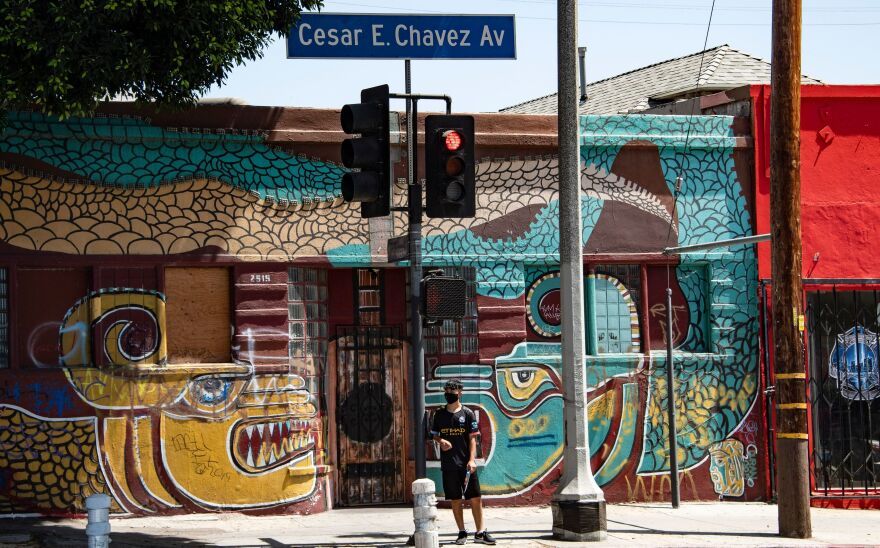There are many things still unknown about the coronavirus. But one thing is certain: the disproportionate harm COVID-19 has caused in communities of color.
To address the issue, California has implemented a new health equity requirement on the state's 35 largest counties — those with a population of more than 106,000. It's believed to be the first such measure in the U.S.
In order to advance to the next phase of economic reopening, counties like Los Angeles will need to reduce the levels of the virus in their most vulnerable communities — by meeting certain test-positivity goals as well as showing targeted investments in resources such as more increased testing, contact tracing and education.
The goal isn't simply to reduce the number of cases, but to bring the numbers in a county's most disadvantaged neighborhoods more in line with the county's overall level.
"We want to make sure that our focus on COVID has a look at every community, regardless of skin color or wealth, and that we are concerned about equity," Dr. Mark Ghaly, California's health secretary, tells All Things Considered. "That means a disproportionate investment in populations and groups that have a disproportionate impact."
Latinos make up about 40% of the state's population, but account for 61% of coronavirus cases and nearly 50% of the deaths. The Black community is 6% of the population, but accounts for about 4% of cases and more than 7% of deaths.
Compare that to the white population — which is about 37% of the population, but 17% of cases and just about 30% of deaths.
Here are excerpts from the interview.
On business owners who might chafe at the health equity metric
For a county to be able to move forward with confidence and success, bringing all of their communities along with reduced transmission, flooding the communities that need testing with that, making sure that we have enough disease investigators and supporting isolation, really allow the county as a whole to move forward, even sooner and with greater confidence, because the disparate levels of transmission within a single county can really lead to problems for the entire county, as the level of mixing, while we reopen more of our business sectors, occurs. ...
We know that so many of the communities that have the disproportionate impact are, in fact, the essential workers and the people who travel on public transportation and move into all parts of the community. So really, this is not just a focus on the race and ethnic impacts of COVID, but really a strategy to make sure we address transmission in a wise and thoughtful way across our state.
On whether the new measure tackles underlying issues — lack of health care and economic opportunity, mistrust of government — that make Black, Latino, Native communities vulnerable
We believe that it certainly gives us a greater path to addressing some of it. In the short run, we focus on creating access to testing. We create better, stronger lines of communication between public health officials and those communities, causing us to hire and bring on more bilingual staff that can relate and connect with the target population. So we believe it both focuses on COVID, but also gives us a pathway to continue to increase our connection and deepened impact with communities that, on so many health measures, have faced a disproportionate impact of disease and other bad outcomes.
Copyright 2021 NPR. To see more, visit https://www.npr.org.




